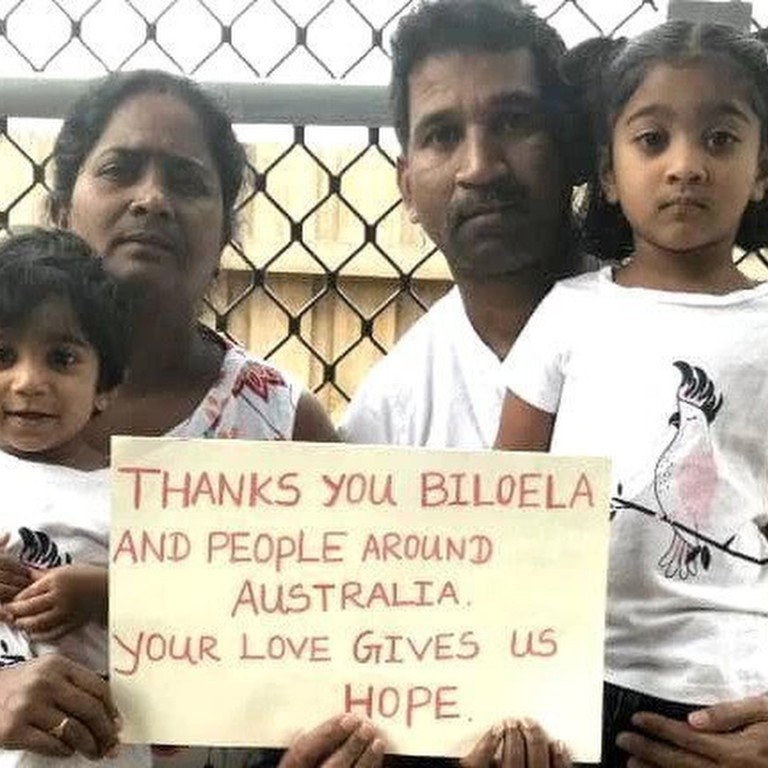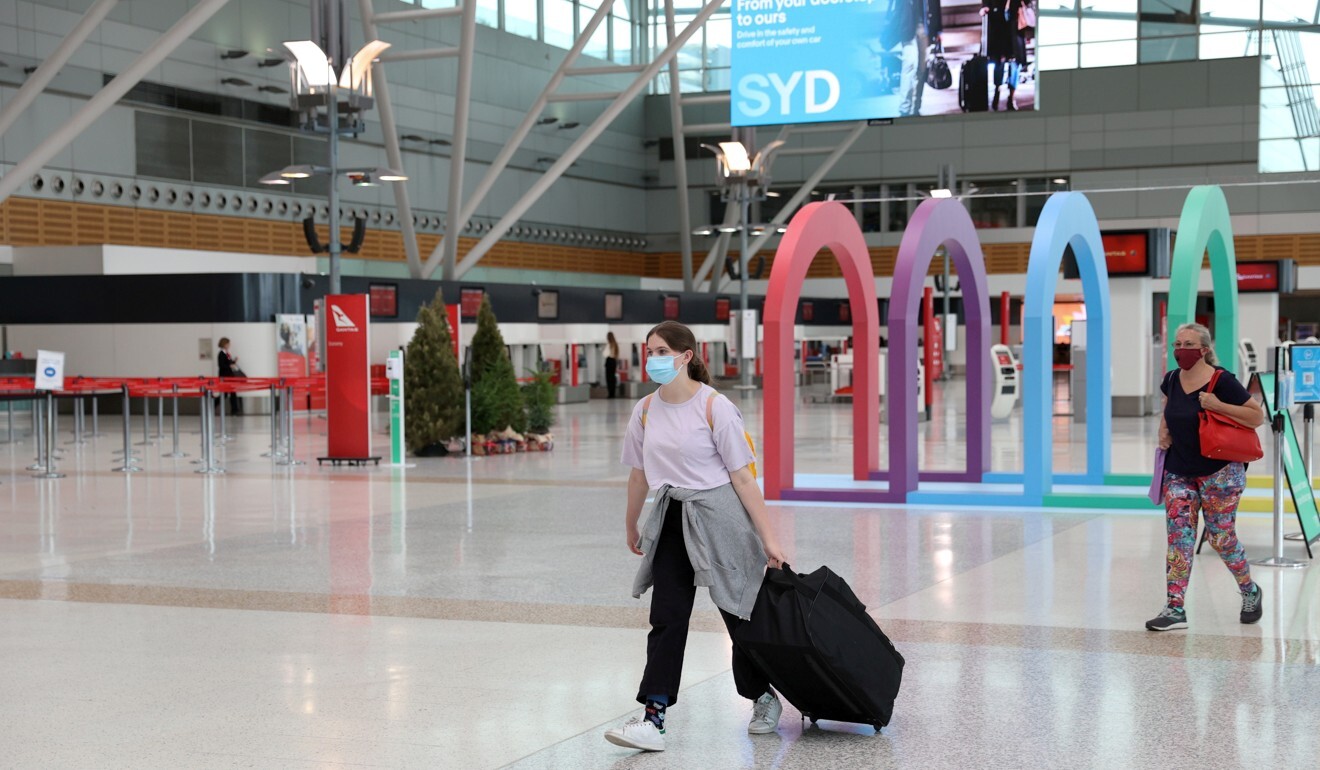
Home for Christmas? But for asylum seekers, Australia’s actions border on inhumane
- As Australia nears its vaccination threshold and plans to reopen its borders, those trapped overseas should put the government’s policies into perspective
- For those seeking refuge, such as the Murugappan family, home remains a broken promise, and many do not know if they will ever have one again
Home for Christmas! What a hope that is to raise. What a sound bite. It’s almost as if a federal election has to be called by next May, and the Australian government last week decided to wind back its own increasingly unpopular closed-borders policy with enough time to take credit for it before the polls.
Weddings and birthdays have been missed. Funerals, too. Little ones have learned that some family members are only available through screens; those a little older have learned that sight and sound are poorer without a tactile component. Everyone looks a little greyer, even when the signal is strong, and a little more frayed around the edges.
Prime Minister Scott Morrison’s announcement of the reopening of Australia, signalling an end to one of the world’s strictest restrictions on travel, is imminent as inoculation rates in states approach the 80 per cent threshold for fully vaccinated residents. Never mind that this position is the result of a badly fumbled vaccine roll-out, or that it has taken the arrival of a more virulent form of Covid-19 to move away from the national addiction to closed borders – the relief is almost palpable. We are so very close.
For some, however, home remains a broken promise.
In March 2018, a family of Tamil asylum seekers was forcibly taken from their family home in the country town of Biloela, Queensland, after their bridging visa expired. Priya and Nades Murugappan, who fled the civil war in Sri Lanka, had two daughters, Kopika and Tharunicaa, during their time in Australia; all four were held in Melbourne that year after their asylum claims were rejected.
Twice they have nearly been deported, in increasingly harrowing circumstances. In 2018, lawyers secured an injunction just hours before their departure. A year later, the family was forced onto a plane in the dead of night; there is footage of Priya being dragged aboard, her children wailing in the background, only for the flight to be ordered to turn around in mid air.

But there was a cruel new twist in the tale last week. Tharnicaa had to be evacuated from the island in June to be treated for a severe blood infection, prompting the family’s relocation to Perth. And on September 23, a day after Australia’s tourism minister flagged that borders could be open by Christmas, Priya, Nades and Kopika were granted 12-month bridging visas – but four-year-old Tharnicaa was denied one, meaning the family cannot return to their home in Bileloa.
The decision has been lambasted by human rights activists and supporters of the Murugappans, and lest there be any doubt that the cruelty is the point, it is worth repeating that Australian media reports place the total cost of detaining and attempting to deport the family over the years at more than A$6 million (US$4.3 million). Their time in limbo has had other costs; in interviews, Priya has laid bare the depths of her family’s despair, and the relentless degradation of their children’s mental and physical health.
The one ray of light amid the gloom has been the community in Bileloa, who have campaigned long and loud to keep the Murugappans in Australia. Their efforts have sparked a national dialogue about asylum seekers and refugees, though at its core the campaign is heartbreakingly straightforward: the town wants the family to come home. And the Australian government will not let this happen.
It’s something to keep in mind, amid the outpouring of relief that the country’s borders will soon be open. Think about how good it feels to know there will be an end to the uncertainty, about the joy of simply being able to plan for the future. Think of the Murugappans, and of the thousands more who by dint of government policy will never be resettled in Australia, even if their refugee status is recognised.
Those of us waiting anxiously for the chance to return home would do well to remember that there are far too many who do not know if they will ever have one again.

